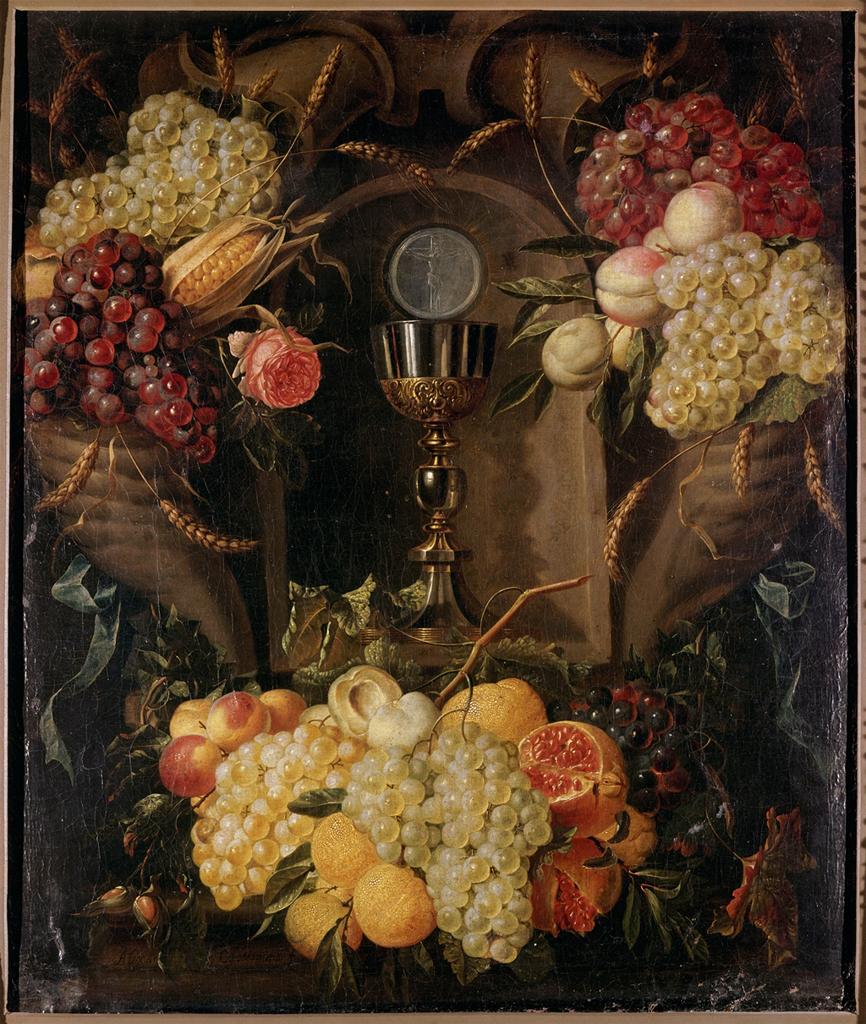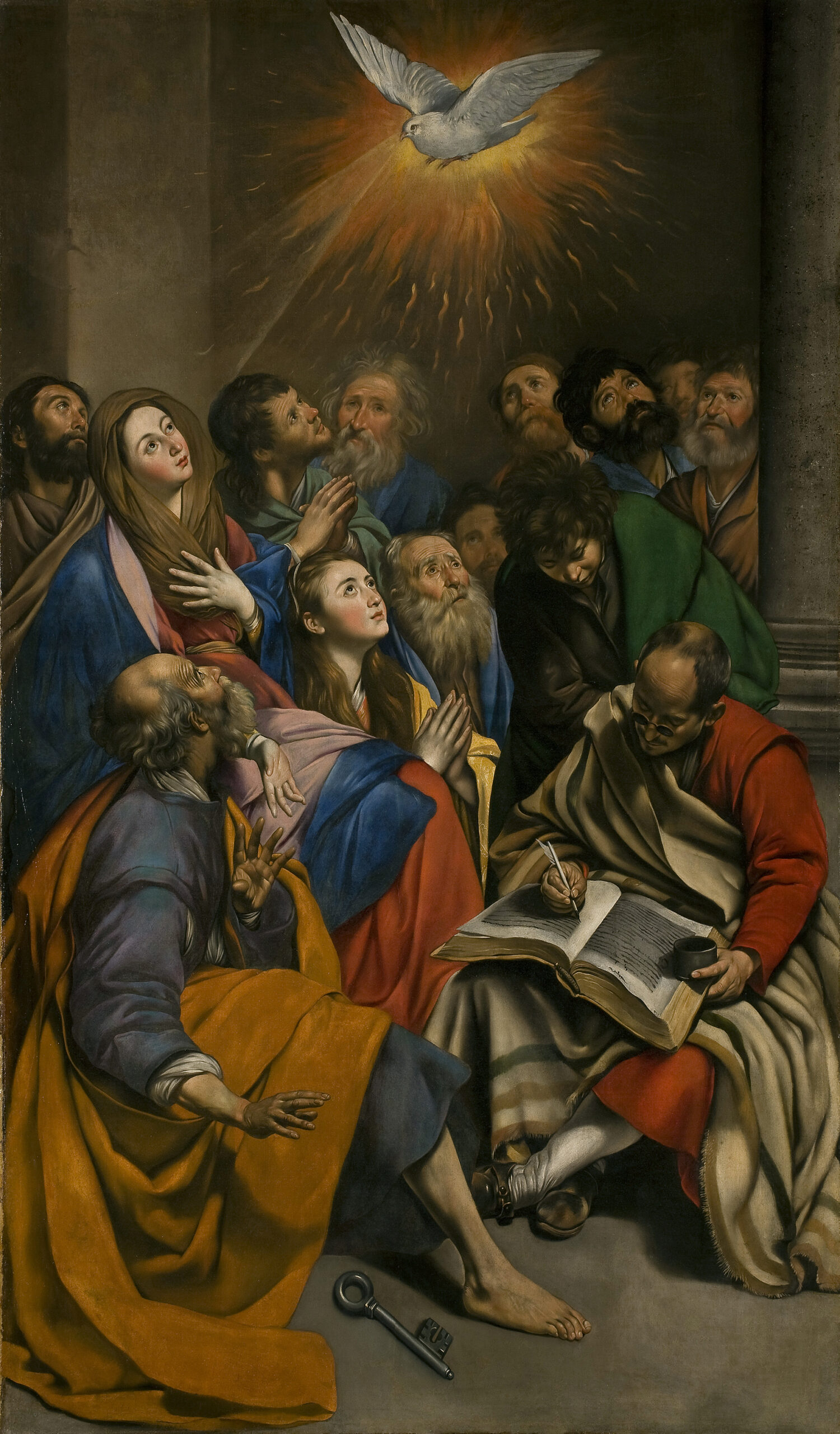“They that eat Me shall yet hunger, and they that drink Me shall yet thirst.”
-Ecclesiasticus 24:29
St. Gregory tells us that there is this difference between the pleasures of the body and the pleasures of the soul, that we desire the former with great impatience when we have them not, and when we have possessed them, we set but little value on them.
For example, in the world every man, according to his birth, quality and profession, desires some civil, military or ecclesiastical dignity. Hardly, however, has he attained the object of his desire when he beings to disregard it and to fix his eyes on something else, of which, when obtained, he is, in like manner, as soon wearied.
In short, unable to regulate his ambition or to set bounds upon his desires, he still aspires after something new and never rests satisfied with what he has. But it is not so in spiritual things. For while we do not have them, we feel disrelish and aversion for them; but when we come to possess them, then we know better their value.
And the more we taste them, the more ardently we seek after them. The reason for the difference, says this great Saint, is that the enjoyment of temporal good and pleasures teaches us their vanity and imperfection, so that not finding in them the satisfaction we hoped for, we lose attraction for what we possess; and expecting to find in something else the content we seek after, we allow ourselves to be motivated by new desires.
But we deceive ourselves: these last desires will yield the same result as the others because we are not born for this world, and so there is nothing in it which can fully satisfy us. This is what our Saviour taught the Samaritan woman when He told her, “Whoever drinketh of this water shall thirst again” (John 4:13), because all the “water” of the pleasures and enjoyments of this life can never quench the thirst of man, who is created for Heaven.
But as to spiritual riches and pleasures, we never love or desire them so much as when we possess them, because then we best know their value, and the more perfectly we possess them, the more ardent is our thirst after them. It is not to be wondered at, says the same St. Gregory, that we do not desire spiritual things when, so far from having experienced how sweet they are, we have not ever begun to taste them.
“For how can one love that of which he is ignorant?” The Apostle St. Peter also says, “If so be, you have tasted that the Lord is sweet” (1 Peter 2:3), and the Royal Prophet, “O taste and see that the Lord is sweet” (Psalm 33:9), for when once we begin to taste the Lord and to relish spiritual things, we shall find such sweetness in them as to render our desires for them insatiable.
By these words, then, “they that eat Me shall yet hunger, and they that drink Me shall yet thirst,” we must understand that the more assiduously we apply ourselves to heavenly things, the more frequently and fervently shall we feel the desire to possess them.
But you shall ask me, how can this accord with what our Saviour says to the Samaritan woman, “He that shall drink of the water that I shall give him shall not thirst for ever?” (John 4:13). Here the Son of God says that we shall never thirst if we drink of the water He shall give, and the Holy Ghost, by the mouth of the Wise Man, says that the more we drink the more we shall thirst. How shall we reconcile such different assertions, one with the other?
The holy Fathers reply that by the words of Jesus Christ to the Samaritan woman we are to understand whoever drinks of the living waters therein described “shall never thirst after earthly pleasures” because the sweetness of spiritual things will give him an absolute disrelish for things of the world and will render them quite unsatisfying.
But as to the words of the Wise Man, we must consider them to relate to spiritual things, and we must understand that the more we taste of them, the more we shall feel our hunger and thirst for them increase.
But again, how can this accord with what our Saviour says in the Gospel, “blessed are they that hunger and thirst after justice, for they shall be filled?” (Matt. 5:6). Here He says that He will fill those who shall hunger and thirst after justice, and there the Wise Man assures us that such as shall eat and drink of wisdom shall always find the same hunger and thirst as before.
How is it possible to reconcile assertions so different? It is very easy. It is the privilege and the excellence of spiritual things to satisfy and at the same time to excite our appetite; to quench and still to excite our thirst; and in a word, to cause that the more we eat and drink of them, the more we hunger and thirst after them.
But then, it is a hunger which instead of making us faint and weak, renders us strong and hearty; and it is a thirst which, instead of pain, imparts great pleasure to us. It is true that it is only in Heaven that we shall be perfectly satisfied, according to these words, “I shall be satisfied when Thy glory shall appear” (Ps. 16:15), and those others, “They shall be inebriated with the plenty of Thy house” (Ps. 35:9).
However, the above words of the Wise Man must be understood according to the interpretation of St. Bernard, who says, we shall never be in such manner satisfied with the sight of God as to be without a thirst and a longing desire because, instead of giving us weariness, it will excite in us perpetually a new desire of seeing and enjoying Him.
It is exactly the same with spiritual things here below, for being an emanation from those above, they in consequence participate in their qualities and virtue. On the one hand, they satisfy and fill our hearts, and on the other, they excite in us hunger and thirst. The more we devote ourselves to them, the more we relish them; and the more we enjoy them, the more we continually hunger and thirst after them.
But then, this very hunger will be a kind of satiety, and this thirst a most sweet and agreeable refreshment to the soul. All this ought to excite in us a high idea of spiritual things; it ought to make us set a great value on them and devote ourselves to them with such zeal and fervor that, regardless of and scorning all the allurements and vanities of this world, we may say with the Prince of the Apostles, “Lord, it is good for us to be here” (Matt. 17:4).
This article is taken from a chapter in The Soul Sanctified which is available from TAN Books.






